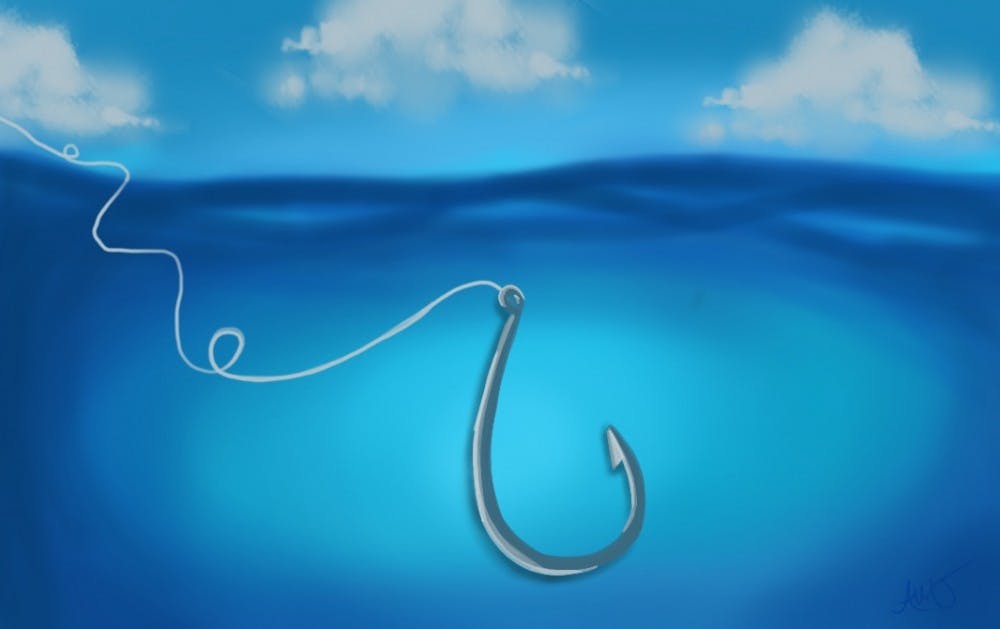In early February, images of posters placed around the ASU campus began to be shared online. The posters featured Nick Sandmann, one of the Covington Catholic High School students who was embroiled in controversy following viral footage of a standoff between the students and Omaha tribe elder Nathan Phillips.
For many students, the subtext of the posters was clearly racist and followed a number of egregious posters, some that have been associated with the Identity Evropa movement, an organization that the SPLC recognizes as a hate group.
There’s no doubt that these posters are the result of emboldened racism in the U.S. But currently, there’s no evidence of a mass movement of white supremacists on campus. The reaction to the posters has played right into the hands of those who put up the hateful signs.
Students should be mindful of not falling for white nationalist bait by amplifying their message. ASU should work to make sure similar posters are removed more swiftly to avoid creating the spectacle that has ensued and made campus feel more hostile for many students.
The most recent spate of posters on campus resulted in multiple social media postings that were widely shared. An ensuing State Press article about the kerfuffle, like the social media posts, featured an image of the poster prominently.
The reaction is understandable given the history of similar posters on campus. Students are rightfully sick of posters that espouse the same tired white nationalist screeds.
Sarah Parks, a graduate student at ASU and a member of the Multicultural Solidarity Coalition, said that these posters have appeared on campus over the last three semesters.
“So we have heard that argument before and one thing is that these posters would be up regardless of whether we put it up on social media or not”, Parks said. “They do keep coming up. And so one aspect of making it more known is to let other students know that ‘Hey, you’re not necessarily alone’, because when there’s silence around it, it just feeds more into the culture of white supremacy.”
But the fact of the matter is that whoever put up the posters, referred to by ASU president Michael Crow as “Cro-Magnons,” could be just a single individual with a printer and an hour of time.
But why would they stop putting up the posters?
Alt-right politics is driven by a troll-culture, inciting reactions and hiding behind irony to spread their ideology. The mass hysteria generated every time they put one up plays right into their hands.
This has become an extremely efficient way for them to spread their message and gain attention. For just the cost of printing out some posters and putting them up around campus, they get their message seen countless times on social media.
The most recent State Press article spawned an article in Breitbart and The College Fix, two outlets with audiences more than primed for the message articulated by these posters.
The way to stem the flow of these posters is to stop making it an effective strategy.
ASU should become more proactive about taking these posters down and provide a more effective way for students to report the posters when they pop-up. Students should be more careful about how they discuss the posters on social media and should avoid sharing images of them.
Most essentially, ASU needs a secure way for students to easily report such posters without having to stir up attention on social media to get the University's attention.
On this point, Parks agreed and suggested, “A hotline, a place, where all students know this is where we can go to report it. And also, staff or people designated to when this does pop up that they're the ones to take it down because that’s a huge toll on students — especially students of color."
Reach the columnist at djrubio2@asu.edu and follow @DanielRubioAZ on Twitter.
Editor’s note: The opinions presented in this column are the authors’ and do not imply any endorsement from The State Press or its editors.
Want to join the conversation? Send an email to opiniondesk.statepress@gmail.com. Keep letters under 500 words and be sure to include your university affiliation. Anonymity will not be granted.
Like The State Press on Facebook and follow @statepress on Twitter.




